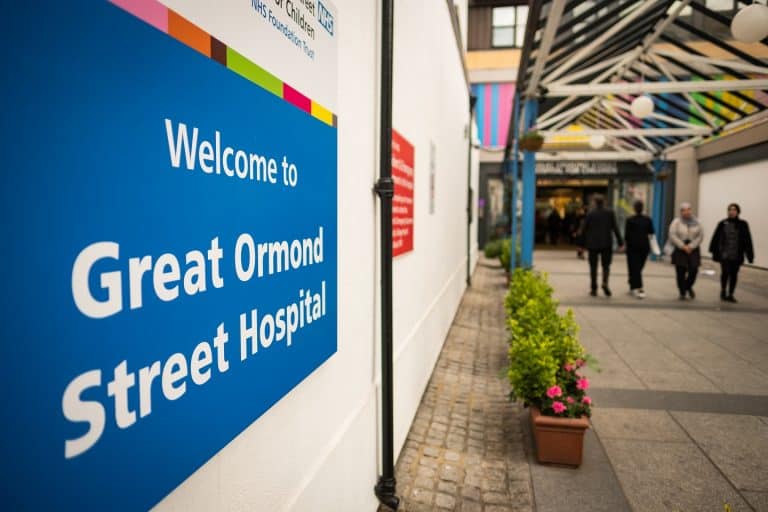Bile Duct injuries: a source of Medical Negligence
How the occurrence of a bile duct injury could be a sign of medical negligence, and how a legal claim for compensation can help.
Our Current Case
In this particular case, the bile duct injury was not identified for a number of years, despite our client suffering symptoms including pain throughout this time. Once the bile duct injury was identified, our client required surgery to fix it. Unfortunately, she continues to have ongoing physical and psychological symptoms because of the negligence, which affect her ability to take care of her children and household. Her injuries have also affected her employment, causing her substantial financial losses. She now also has an increased risk of developing a number of serious conditions in future.
In this case, the Defendant hospital has admitted liability, which means they admit they were negligent. We anticipate that our client will receive over £100,000 in compensation for her injuries.
Sadly, this is one of many bile duct injury claims we have investigated at Bolt Burdon Kemp. A simple error can result in serious injuries for a patient, sometimes causing years of trauma. If the injury is not properly identified and rectified, it can even lead to death.
So what exactly is a bile duct injury, how does it happen and how can a medical negligence claim for compensation help?
Bile Duct Injury: An Overview
Bile ducts carry bile from the liver and gallbladder to the intestines. They are a vital part of our digestive system.
Whilst injuries to the bile duct can occur in many ways, from either trauma or surgery, they most commonly happen during cholecystectomies – gallbladder removal surgery.
Gallbladder removal surgery (cholecystectomies) is one of the most commonly performed procedures in the UK.
A bile duct injury is the most frequently occurring complication of keyhole gallbladder surgery (laparoscopic cholecystectomy). According to NHS Choices, approximately 1 in every 500 people who undergo laparoscopic cholecystectomy in the UK suffers a bile duct injury.
How to Win a Medical Negligence Claim
‘Winning’ a medical negligence claim means that the Defendant pays you compensation (money).
In order to win, the Claimant (i.e. the patient bringing the claim, or the representative of the estate of a deceased patient) must prove both breach of duty and causation.
This means proving:
- Breach of duty: that the medical treatment provided fell below an acceptable standard and that no other responsible body of medical practitioners would have provided it; and
- Causation: that this breach of duty caused a significant injury which would not have otherwise occurred
Both these elements must be established to succeed.
To do this, the Claimant must either obtain supportive evidence from independent medical experts or the Defendant must admit negligence. If we can act for you, we will instruct independent medical experts to prepare reports regarding the care you received.
When Does a Bile Duct Injury Amount to Negligence?
In most cases, the occurrence of a bile duct injury following surgery is, in itself, an indication of negligence. Commonly, this can occur in one of two ways:
- The surgeon may have failed to correctly identify the cystic duct prior to making an incision, resulting in the incorrect duct being cut. This would result in the flow of bile into the patient’s abdomen, and could lead to sepsis.
- The duct could be inadvertently clipped, which would indicate that the surgeon failed to ensure that the clips only encircled the cystic duct. This would result in obstruction of the flow of bile.
Regardless of whether the duct was inadvertently clipped or whether it was cut, both manoeuvres represent substandard care and a breach of duty on the surgeon’s behalf.
Effects of Negligent Bile Duct Surgery
Sadly, the majority of bile duct injuries are not detected at the time of surgery, as in the case of our client. The delay in diagnosis and treatment can have grave consequences for the patient who may suffer from any (or all) of the following symptoms:
- Severe abdominal pain and swelling
- Fever
- Chills
- Nausea
- General discomfort
- Jaundice
Damage to the bile ducts can also lead to cholangitis (an infection of the gallbladder), peritonitis (an infection in the lining of the abdomen), adhesive small bowel obstruction and liver damage. Left untreated, a bile duct injury could be fatal.
As well as physical side-effects, the patient may also suffer:
- Additional time spent in hospital
- An extended recovery period
- Further surgery and treatment
- Additional scarring
- Psychiatric injuries such as depression and anxiety
- Reduced life expectancy
- Future risks of injury
How Can a Medical Negligence Claim Help If You Have Suffered a Bile Duct Injury?
If you have suffered a bile duct injury during surgery, then it is likely that you will be entitled to pursue a claim for medical negligence.
At Bolt Burdon Kemp, we understand that no amount of money can ever undo the distress caused by a serious injury. However, our medical negligence lawyers are experienced in dealing with claims involving bile duct injuries, and we have seen the difference that compensation can make, in improving a person’s quality of life.
The purpose of a medical negligence claim is to obtain compensation which is designed to put you back in the position you would have been in had your treatment been carried out appropriately.
We will fight on your behalf to obtain compensation for the pain and suffering caused by the negligence, as well as any financial losses you have incurred or are likely to incur in the future. Compensation can help you put your life back together. Typical examples of financial losses we regularly recover include:
- Past or future losses of earnings (including bonuses, company benefits and pension losses)
- Compensation for medication, treatment or rehabilitation that you have undergone, or will require in future
- Compensation for any specialist equipment or adaptations to your home or workplace that you need
- Compensation for any care and assistance you required or will need in future (whether that be from a paid carer, or a friend/family member)
We will work with specialist independent medical and legal experts to obtain all the evidence needed to prove your claim and get you the treatment you need. We will also provide practical support to help you to cope with the consequences of medical negligence and put you in touch with a range of organisations, including specialist charities and financial advisers, who may be able to assist you in getting back on your feet.










